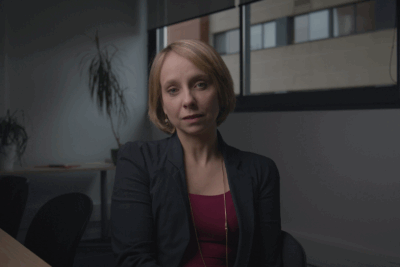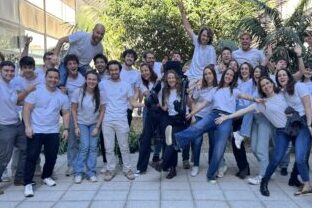30th November 2020
In late 2020, despite the ongoing pandemic shaking up the very foundations of business models and healthcare systems, innovators push ahead and continue to raise funding from external investors. Today, we take a closer look at three interesting EIT Health-accelerated start-ups from Central, Eastern and Southern Europe, which has recently raised funding.
First things first: despite the COVID pandemic surge and the second wave of the coronavirus wreaking havoc on economies and businesses, Q3 2020 was strong in terms of outside investments in healthcare innovations accelerated by EIT Health. In Q3 of 2020 alone, 19 EIT Health supported start-ups, also the ones from regions with moderate innovation capacity, raised, in total, €72,7 mln. The largest external investments were over €10 mln, with a long tail of a smaller round of funding dispersed among various enterprises.
In this article, we take a closer look at the selected companies which drew our attention. Please note that these examples we focus on are not the largest or the biggest (or you name it) ones. They are rising stars that might shake the healthcare disciplines with benefit for patients.
Software-enhanced echoscopy developed in Lithuania
Ligence, a Lithuanian company, works on software that aims to reduce the workload on medical teams. In particular, Ligence has developed software that allows partial automation of cardiac echoscopy. The company won the EIT Health InnoStars Awards this year and attracted a round of pre-seed funding from external investors. Lately, Ligence has raised €360,000 from VladAs Droph and LitBAN business angels’ network. This round of funding is to be used, according to Ligence, to create the final version of the product, ensure certification and a smooth go-to-market path. Some of the funding will also be used for product marketing.
”Chest X-rays, computed tomography or magnetic resonance imaging already have a number of automated solutions developed. However, cardiac echoscopy is still lagging behind global progress and the lack of automation does not always help to correctly identify heart disease. For example, measurements made by two cardiologists for the same patient can be very different, and the automated system is more accurate,” said Dovydas Matuliauskas, Finance Director of Ligence, in one of the interviews.
Device to help newborn babies’ treatment
Hungarian Fetal Health is another example of a company that may mislead outsiders. Despite keeping a relatively low profile, the company made it to this year’s InnoStars Awards semifinals. Fetal Health developed a new, currently non-existent on the market, a gynecological diagnostic medical device that could help significantly reduce the death and injuries of newborns by measuring the fatal EEG and ECG waveforms during pregnancy and labour. The device alerts the medical team when the baby inside the mother’s womb doesn’t receive enough oxygen.
Two months ago, Fetal Health obtained clearance to start clinical trials of the device. This validated the project further and drawn more investors’ interest. The company has received a seed investment of €175,000 and commitment for further €550,000 from Hi-Ventures, a Hungarian investor group.
Romania: crowd of investors rushing in
Crowdfunding may seem more suited to grassroots, out of the box projects, and not necessarily a funding mechanism of healthcare innovation. Oncochain, a Romanian oncology research platform, threw this notion out a window and decided to go off the beaten path. Oncochain has launched the crowdfunding campaign on Seedblink platform. The company raised €350,000 from literal “crowd” of investors, led by Cleverage VC investment fund.
Oncochain is a start-up set up in Timișoara in 2019. Data collected from daily clinical practice are provided to oncology health professionals, research institutes and pharmaceutical companies in the form of statistical analyses. The statistics are anonymous and aim to generate information that can guide research and increase the quality of medical services.
“The idea appeared in 2017–2018. We realized that a lot of important patient data was lost because there was no functional mechanism for collecting and centralizing it. We thought about a solution that would gather and structure information to help doctors, research organizations and especially patients. The funding will help us expand our software and business development teams over the next 18 months so that we can reach our goals for 2021–2022,” said Mădălin Margan, co-founder and CEO of Oncochain.
EIT Health and the EDIT-B consortium transform bipolar disorder diagnosis with groundbreaking blood test

Discover this life-changing project today.
Three EIT Health innovators nominated for EIT Awards

Meet our three EIT Award nominees.
Hospital Clínic study reinforces patient participation as key to digital health innovation

New work published in Journal of Medical Internet Research.